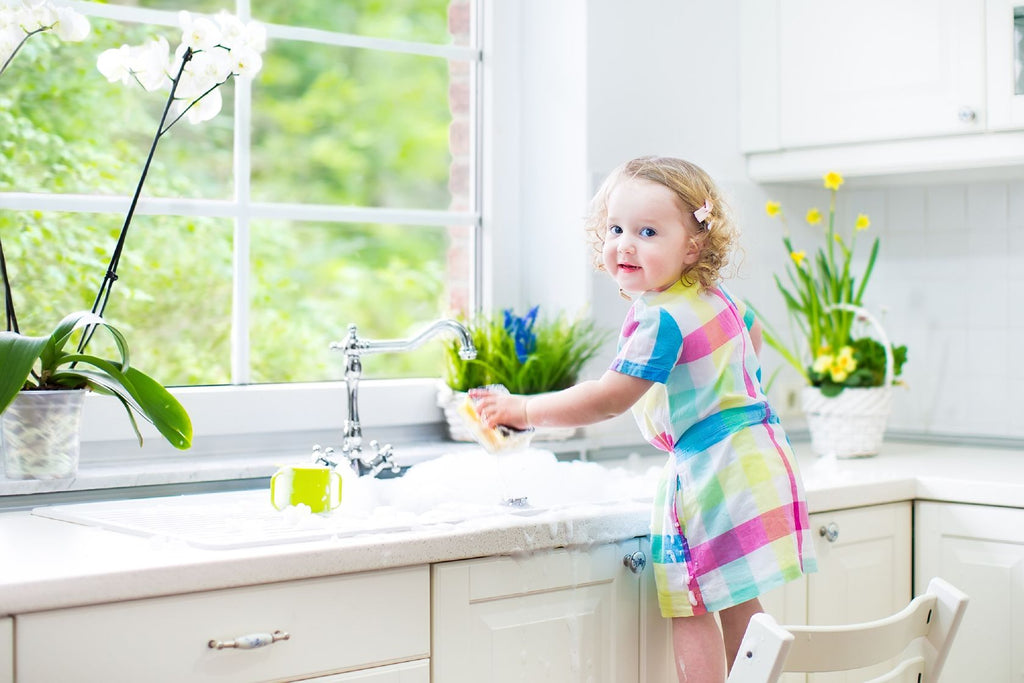Organic Cleaning Products - A Better Choice for You and Your Family

Organic cleaning products allow us to clean our homes without the worry of long term health impacts. Organic cleaning products are free of dangerous toxins.
Organic Cleaning Products - A Better Choice for You and Your Family
Organic cleaning products have seen a drastic uptick in popularity over the past couple of years, and it's no wonder. The cleaners that we all grew up with are filled with harmful chemicals, and people have started moving away from them. It only makes sense. After all, we've all started to monitor the foods we put into our bodies and the grooming and beauty supplies we put onto our bodies. Shouldn't we also be cognizant of the things that we may inhale or get onto our skin when cleaning? That's why organic cleaning products are so important. They allow us to get our homes clean without the worry of long term health impacts.
- Phthalates - Phthalates are found in scented household products like air fresheners, dish soap, cleaners, and even toilet paper. Companies aren't required to disclose the presence of phthalates in their products, but if you see the word "scented", chances are they're in the product. Phthalates are known to be endocrine disruptors. Endocrine disruptors interfere with the hormone systems of the body and can cause things like cancer, birth defects, developmental disorders, lowered sperm count in men, and more.
- Perchloroethylene - Also known as PERC, this chemical found in dry-cleaning solutions, spot removers, carpet and upholstery cleaners and the like has been identified as a neurotoxin by the chief scientist of environmental protection for the New York Attorney General's office. In addition, PERC has been classified as a "possible carcinogen" by the EPA. Exposure is commonly from inhalation, with symptoms such as dizziness and loss of coordination.
- Triclosan - You've probably heard of this one. At first blush, an antibacterial agent sounds great, but in reality, it's incredibly bad. This aggressive antibacterial agent is found in most liquid dishwashing detergents and hand soaps with the "antibacterial" label. In addition to there being no evidence that triclosan makes people healthier or safer, it has the concerning property of promoting drug-resistant bacteria.
- Quartenry Ammonium Compounds - QUATS, the shortened name for this antimicrobial, is found in liquid fabric softener, dryer sheets, and most household cleaners with the "antibacterial" label. Like tricolosan, QUATS promotes the breeding of antibiotic resistant bacteria. However, they have the added bonus of being a skin irritant. They are also suspected of contributing to asthma.
- 2-Butoxyethanol - This key ingredient in many window, kitchen, and multi-purpose cleaners gives them that classic sweet smell. It's a glycol ether, a powerful solvent. According to the EPA, it can cause sore throats when inhaled and, at high levels, contributes to narcosis, pulmonary edema, and severe liver and kidney damage. The EPA sets a standard of air concentration for this substance in the workplace. If you clean a confined space like a bathroom without adequate ventilation you can end up breathing air levels that are far higher than established safety standards.
- Ammonia - This powerful irritant is found in polishing cleaners for bathroom fixtures, sinks, and jewelry, as well as glass cleaners. Commonly used because it dries quickly and with no streaks, the trade off for this addition to cleaners is exposure to a highly powerful irritant. Exposure is via inhalation, and it strongly affects people with asthma, the elderly, and those with lung issues.
- Chlorine - Found in scouring powders, toilet cleaners, mildew removers, laundry whiteners, and even household tap water, chlorine is known to be an acute respiratory irritant, and research is now suggesting that it may be a thyroid disruptor, as well.
- Sodium Hydroxide - More commonly known as lye, this substance is most often found in oven cleaners and drain openers. It is extremely corrosive and can cause severe burns if it touches the skin or gets in the eyes. When inhaled, it can cause a sore throat that can last for several days.
- Kimberly Cornwell
Comments 0